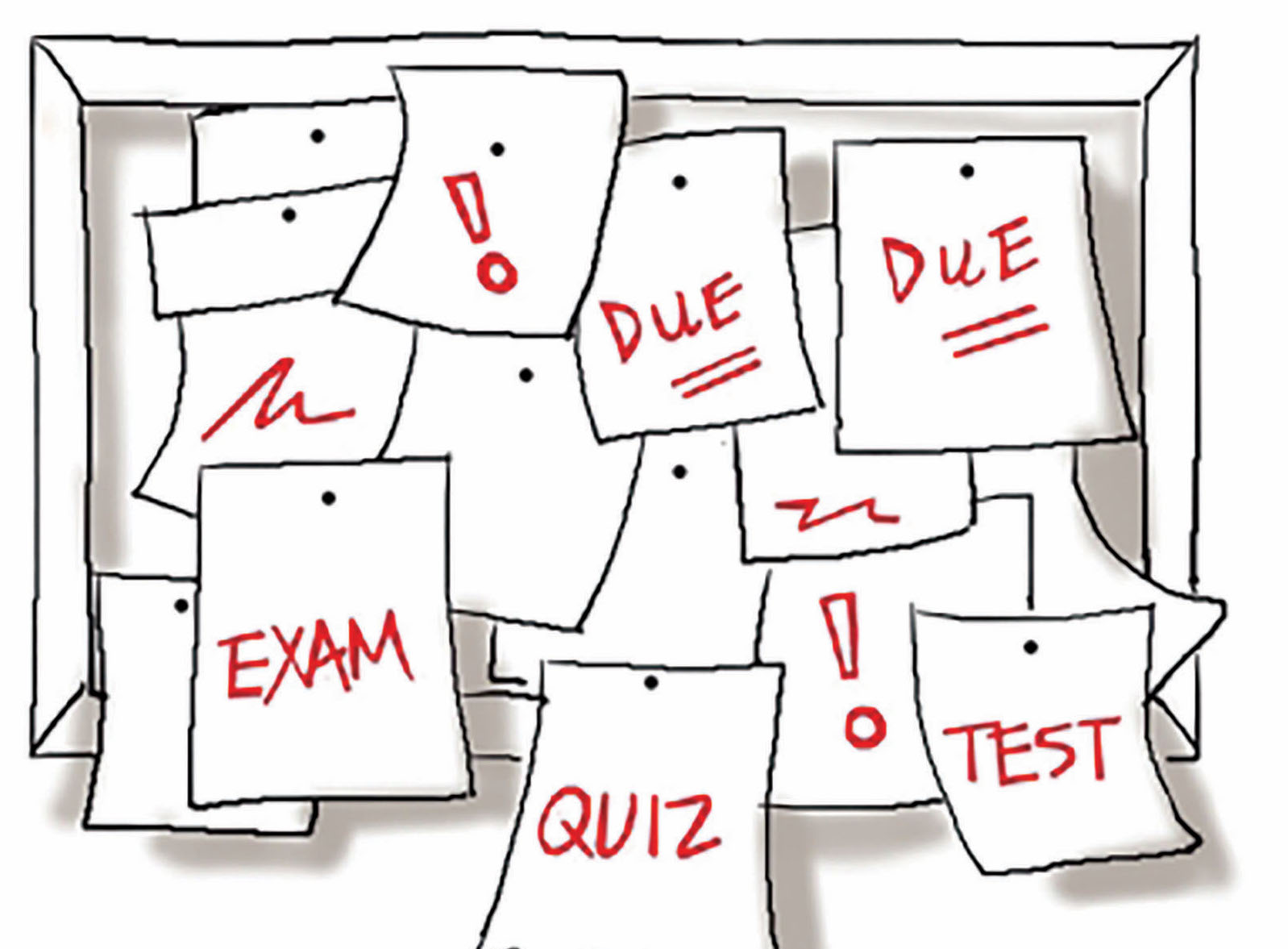Due to online learning during the pandemic, some professors have lessened their late penalties, which can improve students’ mental well-being.
Although many professors changed their late penalty policies for the pandemic, some have reverted back to those used before March 2020 for in-person classes. Students benefited from the more lax policies, and now some of them are now struggling to adjust to the pre-COVID-19 late penalties.
Impact on mental health
Many students continue to struggle with their mental health, partially due to late penalty policies.
Anoosheh Ahmed, a first-year psychology student at UTM, told The Varsity that she had to go through immense trouble to get an extension while having anxiety attacks. She described the process of requesting an extension, saying that it was “overall a generally stressful process.” After having explained that she was experiencing anxiety, Ahmed said she felt that her professors “disregarded [her]… pouring [her] heart out.”
Ahmed also commented on the larger mental health crisis at U of T. “[You want to] be treated like a person, and not just one of the masses of students [at U of T],” she said.
Late penalties vary across U of T, since there is no specific policy that professors have to follow. It is up to them to structure their courses any way they want. Some professors do not allow extensions at all, as is the case with one of the courses Ahmed is taking.
For another one of her courses, she had to go through a tiresome extension request process, which she thinks is unfair to expect from students, especially while there is a mental health crisis at U of T.
Ahmed said that on the day of her deadline, she “physically felt sick… out of sheer anxiety.” The late penalty for that course meant five per cent was taken off her mark every day, and she was worried that she wouldn’t finish in time. When she reached out to the teaching staff, they told her to fill out an absence form on Acorn, but didn’t give proper directions on how to access that form.
“We’re already struggling with mental health, especially when everything’s online. And this class is asynchronous, which makes it that much harder,” Ahmed said.
Waiving late penalties
Oliver Zhao is a fourth-year student studying criminology and sociolegal studies, international relations, and French. In an interview, he told The Varsity that he took some courses last year with Kerry Taylor, an assistant professor in the Centre for Criminology and Sociolegal Studies, where she had waived all late penalties. There was a recommended date to submit assignments by, but there was no late penalty for students submitting assignments until the last day of classes.
Zhao said that these classes were less stressful. “[Taylor] recognized that it was a tough time for everyone,” said Zhao.
The Varsity also talked to Felan Parker, an assistant professor in the department of Book and Media Studies at St. Michael’s College, who doesn’t have late penalties for any assignments in his courses this year. He first removed all late penalties in spring 2020, when the pandemic started. “It just did not in any way seem fair at that point,” he explained.
Parker extended the same no late penalty policy to the 2020–2021 academic year. He said, “To me, it felt like a moral imperative to not penalize students during such a difficult time.”
Parker explained that he waived late penalties in the beginning as an “emergency measure,” but later found himself questioning why he needs to enforce late penalties at all. “I think that the pandemic has prompted us as professors to reflect on what we do and why we do it.”
In his experience, the majority of students still submit things within a week of the deadline. “Not having late penalties didn’t substantially impact my grading timelines, or when students were submitting things.”
Parker said he did not notice a difference in the average grades in his current classes, which use the new late penalty policies, and classes from before COVID-19 with more traditional policies. He continues to assess the usefulness of his current teaching practices. “This was an experiment, and it definitely continues to be an experiment… this is a transitional year.”
He has also changed his policies over the course of the pandemic. In spring 2020, he didn’t ask students for any explanation or updates on their assignment submissions. Now, he encourages students to let him or their teaching assistant know if they will be submitting assignments late, though he doesn’t impose late penalties on assignments whether or not the teaching staff is informed that they’ll be submitted late.
In general, Parker said that he is also not in favour of students having to produce proof of emergency to get extensions or accommodations in their classes. “I actually don’t think it’s appropriate for students, for example, to have to share [details of] medical circumstances, mental health circumstances, or family tragedies [with professors].”
Discussing his motivations for his current teaching policies, Parker said, “I don’t want my class to be the class that ruins your week or month.”


